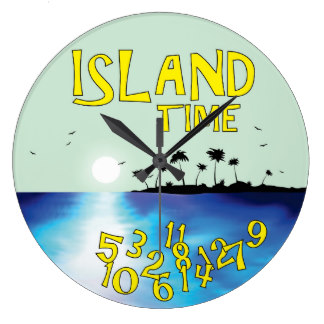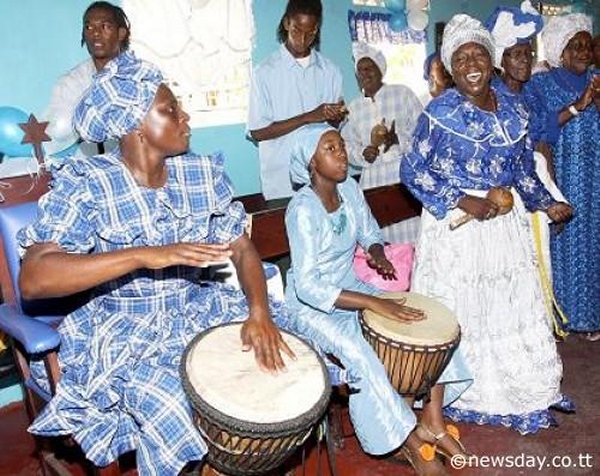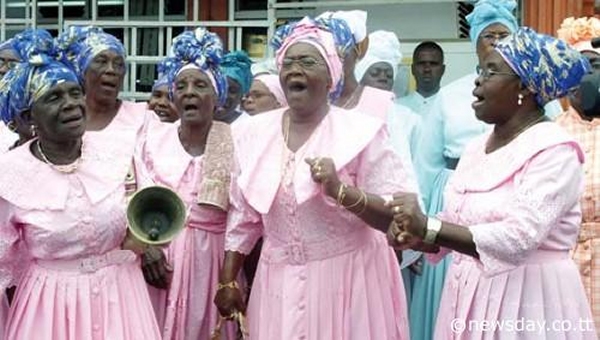Working on Island Time
/ The Urban Dictionary defines island time as “the time vacuum created by the ocean's presence. Similar to stoner's time, everything moves nice and slow. This carefree aura even has the ability to travel with islanders and can engulf you in their presence.” Perhaps it's being surrounded by the Caribbean Sea and seeing palm trees sway lazily in the breeze or perhaps it's the hot, humid, sultry weather that sucks the energy out of you that accounts for the laid-back attitude and slow way of life here. Things don't happen quickly in Trinidad. We're definitely working on island time here.
The Urban Dictionary defines island time as “the time vacuum created by the ocean's presence. Similar to stoner's time, everything moves nice and slow. This carefree aura even has the ability to travel with islanders and can engulf you in their presence.” Perhaps it's being surrounded by the Caribbean Sea and seeing palm trees sway lazily in the breeze or perhaps it's the hot, humid, sultry weather that sucks the energy out of you that accounts for the laid-back attitude and slow way of life here. Things don't happen quickly in Trinidad. We're definitely working on island time here.
People never rush. When they walk, they saunter or amble. There's no swift pace involved … no running. Even the traffic moves slowly … many times at a crawl for no apparent reason … but you rarely see road rage or angry faces on the drivers. So what … traffic is moving slowly … oh, well … we'll get there eventually. The cause of the traffic jam could be a huge pothole in the road or a broken-down bus or just as likely two cars heading in opposite directions stopped on the two lane road for a quick chat. Schedules and appointments are more of a suggestion than they are an actual timetable to which folks adhere.
In a country that has 17 national holidays (that's more than three business weeks of holidays – and that's not counting Carnaval), it's easy to understand the slow pace and delays, but it's especially difficult to deal with if you're relying on people to get projects completed “on time”, because “on time” has little meaning here. Things get done when they get done.
For cruisers, this is a frustrating issue. There seems to be no urgency about anything and, of course, for us everything is urgent. We want to get done and get back in the water. Case in point is David has been waiting for tradesmen to show up for estimates and project work. “I'll be there in an hour or so”, they tell him. The critical words “or so” mean perhaps sometime in the future. It's kind of like “just now” in South Africa. When they haven't shown up after a couple of hours and David calls, they promise “anytime now” which means sometime later in the day. We haven't figured out the American English equivalent for “now” which actually means “NOW!” We're not sure that word exists.
As a result, it's impossible to schedule more than one task a day and sometimes even the one doesn't get accomplished. Work on Nine of Cups is progressing more slowly than we'd hoped. Several projects, like pulling the prop shaft and removing the old sea cock from the engine through-hull, require more specialized tools than we have aboard. (I have trouble imagining a tool that David does not have). Since one task or project relies on another to be finished before starting a new one, we find ourselves getting “behinder and behinder”. The calendar days are quickly being eaten up and May 1st, our anticipated departure day, will be here before we know it.
Perhaps it's time to consider putting Plan B down on paper?




